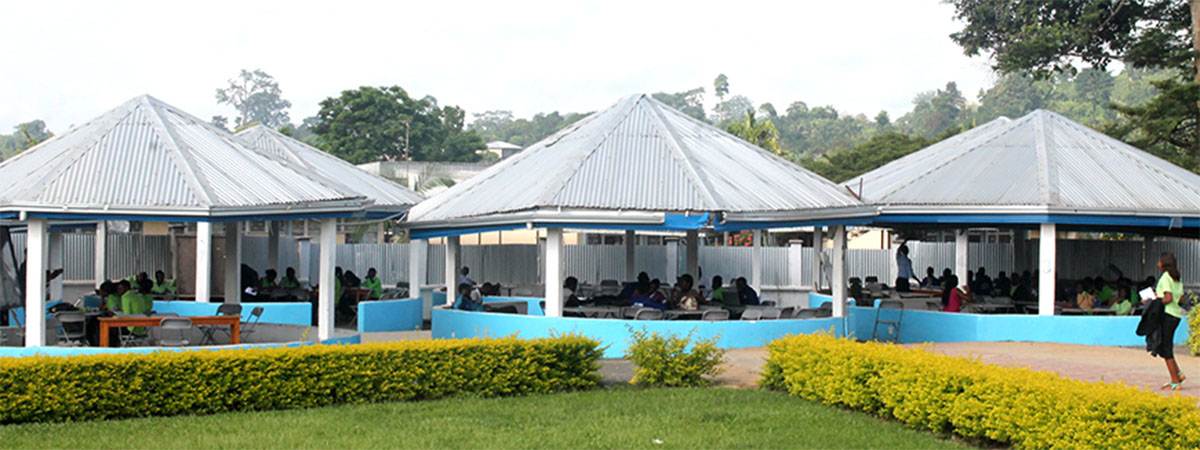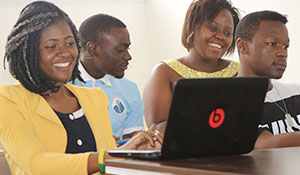In 1991, when visiting Focolare communities in Brazil, Chiara Lubich, Foundress of the Focolare’s Economy of Communion Philosophy was overwhelmed by the poverty of her members and the inequalities between rich and poor, and she realized that something more radical needed to be done. She began to reflect with the communities in Brazil, on what else Focolare communities could do to respond to the impoverished situation.

Just before this experience, she read John Paul II’s new encyclical, Centesimus Annus, which focused on the importance of the business economy and how business can be “communities of work” and give meaning to productive and consumptive activities. It is this dynamic of informed faith, especially a socially informed faith, and a deep sensitivity to the suffering of others, which gave birth to the EoC.
The EoC emerged both because of the failure of the modern economic system to humanize business communities, and because the charism of unity in the Focolare movement impelled it to heal the division that poverty was causing. Chiara’s idea in Brazil was quite simple: she proposed to put together the skills and the few resources of many persons who had no job and establish enterprises with the help of people with experience in their field. These enterprises – in line with the experience of the communion of goods – would generate a profit for the community.
The profit would be divided in three parts. One third would be used to feed and clothe the indigents; one third would be used to spread this new culture of giving, this new approach of being entrepreneur; and one third would be used to help the businesses grow and create new jobs. Thus, the communion of goods on the family and personal level was brought to the level of the enterprise, to a more global level and became what we now call “the economy of communion.”
Today, the EoC has nearly 840 small to medium-sized businesses, cooperatives, and associations in over 50 countries participating in the project, redistributing a portion of their profits to promote welfare in the poorest countries and the spread of the “culture of giving.” It has achieved tangible results during the last two decades and has provided clarity between beliefs and actions, faith and reason, business and spirituality across all life settings.
In 2007, Bishop Bushu, Bishop of the Diocese of Buea had an inspiration to found a Catholic Professional university to address the problems of unemployment, poverty, youth idleness and dependency and overcrowding in public universities. After obtaining permission from the Ministry of Higher Education to create and start the university in 2009 and May 2010 respectively, he surprised the world by declaring it an EoC university. The Proprietor’s vision was not only to train creators versus Job seekers but to form a “new people,” “new men and women”, —Christian business leaders, saints and scholars, entrepreneurs, workers, directors, consumers, scholars, administrators, students, economic workers, rich and poor, families—who could be called “homo donator,” persons who would be capable of putting into practice the “culture of giving” in a new society that puts solidarity and sharing at the heart of its understanding of relationships and so bring the authentic transformation that the African continent needs through living out the “culture of giving.” To achieve this vision of the Proprietor, CUIB has focused on the following:

EoC in extracurricular
Each working day, from 11:45 – 1:30, all the offices of the university are closed to pave the way for all EoC related activities. The “EoC hour,” as it is called, begins with the celebration of the Holy Mass at midday, the greatest act of Communion. From 12:30 -1:30, EoC is reserved for sharing, meditation, ritual celebrations, birthdays, Base Group work, tutoring, inspirational talks etc. Every Thursday from 12:30 – 1:30 students and faculty are expected to devote their time in working with their School Base Groups or Entrepreneurial Groups. These activities are meant to build and strengthen the culture of Communion within the Campus and among Administration, Faculty, Staff, and students.
EoC in Assessments
EoC has been included in the assessment of students’ academic work. Since students must belong to a School Base Group of 3 or 5 students, faculty members use this base group to give assignments to students and evaluate them based on these groups. It is this group score that forms 10% of the total continuous assessment score for the semester. Group work and assessment help to train CUIB students in collaboration, conflict resolution, group genius ability, care and support for one another, group success, and team building and also attempt to fight greed, tribalism, and other ills plaguing the continent. In structuring these groups, many factors are taken into consideration such as gender, tribe, intellectual capacity, language, and social ties, all to foster a true spirit of communion as reflected in the Trinity.
EoC and the CUIB Business and Research Park
CUIB has created its own business park known as CUIB Centre for Entrepreneurship, Research and Innovation (CERI). The idea of the CUIB –CERI Business Park is to demonstrate that economic activity can be viable when performed in a climate of freedom, equality, and fraternity. It is important to note here that all businesses that are in partnership with CERI must be willing to share a percentage of their profits in three parts – to the poor, to sustain the business, and to foster the culture of sharing.
EoC in the Environment
We have designed and built what is now known as the CUIB EoC Village. This is a series of “boukarous,” circular buildings, seven in number to express perfection and to remind anyone who enters the CUIB campus to know that sharing is our culture. These structures are meant also to facilitate collaborative work, learning in groups, and sharing. See our website www.cuib-cameroon.net.for the design and format. Events that are EoC related are generally organized at the village.
EoC on our official Documents
All acts and documents of CUIB to third parties especially official letters, receipts, announcements, and all other publications bear two logos – the university’s logo which is Christ in glory, on the globe holding the cross, and the EoC logo which is two open hands joined together as a symbol of openness and sharing and three rings interconnected representing the unity of the Trinity.
EoC and the Hour of Truth
While in CUIB we take seriously the disciplinary model of Christ in Matthew’s Gospel (Matthew 18:15-20) that we meet with our brothers and sisters first, then we call on a third person before drawing the attention of the person in writing, we also have what we call the Hour of Truth. This is the period of appraisal that occurs once a semester. EoC fosters the culture of truth and sometimes members may be advised to look for other opportunities when their presence is a counter-witness to the values of the Gospel. Any business enterprise that cannot call its members to the truth or face the truth will end up in superficial relationships which might lead to the collapse of the organization. At the highest level we have to live the gospel message of truth.
EoC in Governance Policy
CUIB has adopted a shared governance approach, from bottom to top and not top to bottom involving faculty, administration, staff, and student Senators. Everyone is considered as a “stakeholder” and based on the EoC principle, we teach our students not only to fish but we fish together with them. There is the CUIB Student Government Association (STUGA) that works hand in glove with the administration to provide a safe environment for all. CUIB now has faculty, staff, and student Senators who are both academic and pastoral.

